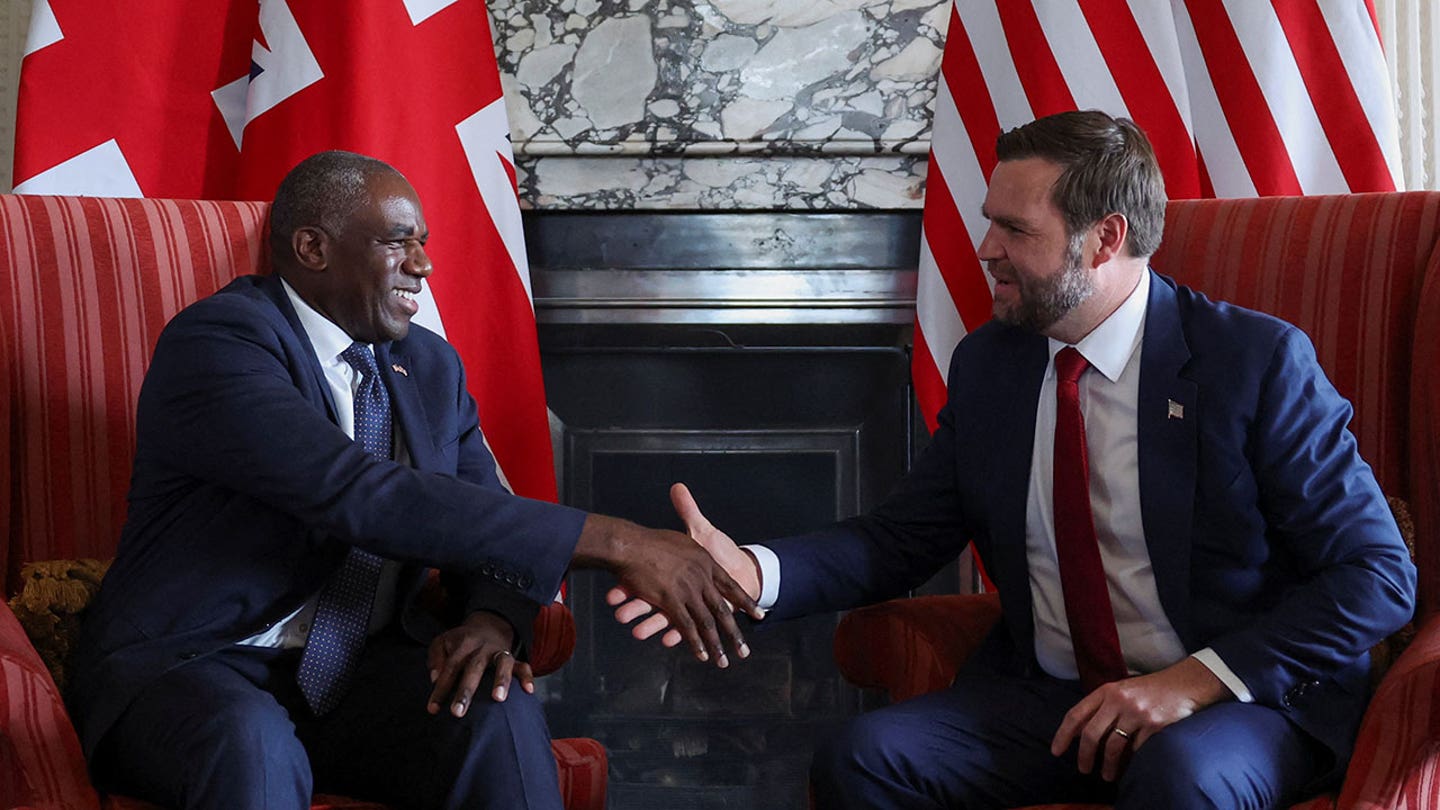
‘Looming over the city like gods’: the men who changed New York for better and worse
Entities mentioned:
- Jonathan Mahler: Curiosity, Professional pride, Legacy
- Ed Koch: Ambition, Pride, Legacy
- Rudy Giuliani: Ambition, Power, Control
- David Dinkins: Justice, Unity, Legacy
- Donald Trump: Power, Recognition, Greed
- Al Sharpton: Justice, Influence, Recognition
- Larry Kramer: Moral outrage, Justice, Determination
- Linda Fairstein: Justice, Professional pride, Revenge
Article Assessment:
Credibility Score: 75/100
Bias Rating: 45/100 (Center)
Sentiment Score: 50/100
Authoritarianism Risk: 25/100 (Generally Democratic)
Bias Analysis:
The article presents a balanced view of historical events and figures, offering both positive and negative aspects of key personalities. While it leans slightly left in its framing of social issues, it maintains a generally neutral tone in its historical analysis.
Key metric: Urban Social Cohesion
As a social scientist, I analyze that this article provides a comprehensive historical overview of New York City's political and social landscape from 1986 to 1990, drawing parallels to current issues. The narrative highlights the cyclical nature of urban challenges, particularly focusing on political power dynamics, racial tensions, and economic disparities. The author's examination of key figures like Ed Koch, Rudy Giuliani, and Donald Trump illustrates how personal ambitions and the pursuit of attention can shape a city's trajectory. The article underscores the complexities of urban governance, showing how leaders' decisions can have long-lasting impacts on social cohesion and economic development. This historical perspective offers valuable insights into the ongoing challenges of maintaining social unity and equitable progress in large, diverse urban centers.

Trump Gives Russia 10-Day Deadline To End Ukraine
Entities mentioned:
- Donald Trump: Power, Control, Influence
- Vladimir Putin: Power, Control, Influence
- Volodymyr Zelensky: Self-preservation, Duty, Determination
- Russia: Power, Control, Influence
- Ukraine: Self-preservation, Freedom, Unity
Article Assessment:
Credibility Score: 5/100
Bias Rating: 40/100 (Lean Left)
Sentiment Score: 15/100
Authoritarianism Risk: 90/100 (Totalitarian Risk)
Bias Analysis:
The article presents an extreme and unlikely scenario without credible sources, suggesting a satirical or misleading intent. The framing appears to mock Trump's communication style and foreign policy approach, indicating a left-leaning bias.
Key metric: International Relations and Diplomacy
As a social scientist, I analyze that this article, if taken at face value, would represent an extreme shift in US foreign policy towards Russia and Ukraine. The alleged statements by Trump, if true, would indicate a severe disregard for international law, human rights, and diplomatic norms. Such a position would likely cause significant damage to US-Ukraine relations, NATO alliances, and overall global stability. However, the extreme nature of the statements and the lack of corroborating sources raise serious doubts about the article's authenticity and reliability.

‘It felt like a scene from The Handmaid’s Tale’: US comics on the dangers of political satire
Entities mentioned:
- Jena Friedman: Freedom, Justice, Professional pride
- Michelle Wolf: Professional pride, Freedom, Determination
- Sam Jay: Curiosity, Unity, Professional pride
- Donald Trump: Power, Control, Recognition
- US Immigration and Customs Enforcement: Control, Security, Duty
- Stephen Colbert: Justice, Professional pride, Freedom
- Jon Stewart: Justice, Freedom, Professional pride
Article Assessment:
Credibility Score: 75/100
Bias Rating: 35/100 (Lean Left)
Sentiment Score: 35/100
Authoritarianism Risk: 25/100 (Generally Democratic)
Bias Analysis:
The article leans left, presenting perspectives critical of the Trump administration and conservative policies. It primarily features liberal-leaning comedians and their concerns, with limited counterbalancing viewpoints.
Key metric: Freedom of Speech Index
As a social scientist, I analyze that this article highlights growing concerns about freedom of speech and political satire in the United States, particularly in the context of comedy. The experiences of comedians like Jena Friedman, Michelle Wolf, and Sam Jay reflect a perceived 'chill' in the industry regarding political comedy. Their encounters with border control, decisions to live abroad, and careful considerations about content suggest a climate of wariness and self-censorship. The cancellation of Stephen Colbert's show and Jon Stewart's comments further underscore industry-wide concerns about the suppression of critical voices. This situation potentially impacts the Freedom of Speech Index by indicating a trend towards self-censorship and institutional pressure on political commentary, which could lead to a decline in open discourse and satirical expression in the United States.

Beto O'Rourke compares 2025 America to 1933 Germany and 'can only imagine the history books'
Entities mentioned:
- Beto O'Rourke: Moral outrage, Righteousness, Fear
- Gavin Newsom: Influence, Ambition, Unity
- Ken Paxton: Justice, Control, Duty
- Texas Democrats: Determination, Righteousness, Self-preservation
- Republicans: Power, Control, Loyalty
- Donald Trump: Power, Control, Recognition
- John Cornyn: Justice, Duty, Loyalty
Article Assessment:
Credibility Score: 65/100
Bias Rating: 65/100 (Lean Right)
Sentiment Score: 25/100
Authoritarianism Risk: 40/100 (Generally Democratic)
Bias Analysis:
The article leans right, focusing more on O'Rourke's controversial statements and including criticism from Republican sources. While it presents O'Rourke's views, it does not provide balancing perspectives or context for his comparisons.
Key metric: Political Polarization Index
As a social scientist, I analyze that this article highlights the increasing political polarization in the United States. O'Rourke's comparison of contemporary America to 1933 Germany demonstrates an extreme view of the political opposition, which can further deepen divisions. The invocation of Nazi Germany in modern political discourse is a sign of heightened tensions and a breakdown in civil political dialogue. This rhetoric, coming from a prominent political figure, may contribute to a more adversarial and less cooperative political environment, potentially impacting governance and social cohesion. The article also illustrates the ongoing debate about the state of American democracy and the perceived threats to it, which is a significant concern affecting political discourse and public trust in institutions.

Sport
Entities mentioned:
- Sports: Competitive spirit, Recognition, Professional pride
- Doubles players: Determination, Pride, Professional pride
Article Assessment:
Credibility Score: 65/100
Bias Rating: 50/100 (Center)
Sentiment Score: 55/100
Authoritarianism Risk: 20/100 (Strongly Democratic)
Bias Analysis:
The article appears to present a balanced view of sports developments, without favoring any particular side or perspective. The language used is neutral, focusing on factual reporting rather than opinion or partisan viewpoints.
Key metric: Cultural Influence and Soft Power
As a social scientist, I analyze that this article, while brief, touches on the evolving nature of sports, particularly in doubles competitions. The mention of 'reimagined' doubles suggests a shift in the sport's format or perception, which could impact how sports are consumed and appreciated by the public. The reference to 'starry pairings' and 'specialists' indicates a focus on both star power and technical expertise in sports, potentially influencing public engagement and the sport's cultural significance. This evolution in sports presentation and competition format can affect the United States' cultural influence and soft power on the global stage, as sports often serve as a vehicle for cultural exchange and international relations.
- Read more about Sport
- Log in to post comments

Trump threatens 'very severe' consequences if Russia doesn't agree to end Ukraine war
Entities mentioned:
- Donald Trump: Power, Influence, Recognition
- Vladimir Putin: Power, Control, Self-preservation
- Joe Biden: Duty, Influence, Legacy
- Volodymyr Zelenskyy: Determination, Unity, Justice
- Russia: Power, Control, Self-preservation
- Ukraine: Self-preservation, Freedom, Justice
- United States: Influence, Security, Duty
Article Assessment:
Credibility Score: 70/100
Bias Rating: 55/100 (Center)
Sentiment Score: 30/100
Authoritarianism Risk: 35/100 (Generally Democratic)
Bias Analysis:
The article presents multiple perspectives, including Trump's, Zelenskyy's, and implied Russian actions. While it focuses more on Trump's statements, it provides context and counterpoints, maintaining a relatively balanced approach.
Key metric: International Diplomacy Effectiveness
As a social scientist, I analyze that this article highlights the complex dynamics of international diplomacy and conflict resolution. Trump's threat of 'very severe consequences' for Russia demonstrates an attempt to leverage U.S. power in negotiations, but also reveals a potential lack of concrete strategy. The mention of previous ineffective conversations with Putin suggests limitations in diplomatic efforts. Zelenskyy's statement reinforces the ongoing nature of the conflict and the need for coordinated international pressure. The article indicates a challenging diplomatic landscape where threats and negotiations have yet to yield significant progress in ending the Ukraine war, impacting the U.S.'s perceived effectiveness in international conflict resolution.

Vance: Adversaries are ‘afraid’ of US military, and that makes tough talks like Putin possible
Entities mentioned:
- JD Vance: Influence, Righteousness, Power
- Donald Trump: Power, Recognition, Control
- Vladimir Putin: Power, Control, Self-preservation
- U.S. Military: Duty, Professional pride, Deterrence
- European leaders: Security, Unity, Self-preservation
- Volodymyr Zelenskyy: Determination, Self-preservation, Unity
Article Assessment:
Credibility Score: 70/100
Bias Rating: 65/100 (Lean Right)
Sentiment Score: 55/100
Authoritarianism Risk: 45/100 (Mixed/Neutral)
Bias Analysis:
The article leans right, focusing heavily on the Trump administration's perspective and Vance's militaristic rhetoric. It presents a unilateral view of negotiations and U.S. strength, with limited counterbalancing viewpoints or critical analysis of the approach.
Key metric: U.S. Global Military Influence
As a social scientist, I analyze that this article emphasizes the perceived strength of the U.S. military as a key factor in international negotiations, particularly regarding the Russia-Ukraine conflict. Vice President Vance's rhetoric suggests a shift towards a more assertive foreign policy stance, leveraging military prowess as a negotiation tool. The administration's approach appears to be recalibrating U.S. involvement in the Ukraine conflict, pushing for greater European responsibility. This stance could potentially impact U.S. global military influence by altering the dynamics of NATO alliances and the perception of U.S. commitment to European security. The emphasis on bilateral talks between Trump and Putin, bypassing multilateral frameworks, indicates a potential realignment of diplomatic strategies that could have far-reaching consequences for U.S. global military positioning and influence.

DAVID MARCUS: Trump understands that safety is for every citizen, not just the lucky few
Entities mentioned:
- Donald Trump: Ambition, Power, Legacy
- Democrats: Competitive spirit, Loyalty, Control
- Sen. Sheldon Whitehouse: Righteousness, Loyalty, Indignation
- Rep. Eric Swalwell: Competitive spirit, Recognition, Influence
- Rudy Giuliani: Determination, Legacy, Professional pride
- Mayor Muriel Bowser: Duty, Security, Pragmatism
Article Assessment:
Credibility Score: 45/100
Bias Rating: 75/100 (Lean Right)
Sentiment Score: 65/100
Authoritarianism Risk: 65/100 (Authoritarian Tendencies)
Bias Analysis:
The article heavily favors Trump's perspective and criticizes Democrats, using loaded language and selective examples. It presents a one-sided view of the crime situation and policy responses, aligning closely with right-wing talking points.
Key metric: Violent Crime Rate
As a social scientist, I analyze that this article focuses on President Trump's initiative to address crime in Washington D.C., framing it as a bold and necessary action. The article draws parallels to historical figures and past successful crime reduction efforts, particularly Rudy Giuliani's work in New York City. It portrays Democrats as obstructionist and out of touch with the realities of crime, while painting Trump as a decisive leader addressing a critical issue. The emphasis on public safety as a fundamental right and governmental responsibility is central to the article's argument. This initiative could potentially impact the violent crime rate in D.C. and, by extension, influence national crime statistics and policies. However, the article's strong partisan framing and lack of diverse perspectives limit its comprehensive analysis of the complex factors contributing to urban crime rates.

What we know about Trump’s meeting with Vladimir Putin in Alaska
Entities mentioned:
- Donald Trump: Ambition, Legacy, Power
- Vladimir Putin: Power, Control, Influence
- Volodymyr Zelenskyy: Determination, Righteousness, Self-preservation
- Karoline Leavitt: Duty, Loyalty, Professional pride
- Kaja Kallas: Security, Unity, Justice
- Dan Hoffman: Professional pride, Wariness, Curiosity
- Kirill Dmitriev: Influence, Loyalty, Pride
- Recep Tayyip Erdoğan: Influence, Recognition, Power
Article Assessment:
Credibility Score: 75/100
Bias Rating: 55/100 (Center)
Sentiment Score: 45/100
Authoritarianism Risk: 35/100 (Generally Democratic)
Bias Analysis:
The article presents multiple perspectives and quotes from various sources, indicating an attempt at balanced reporting. However, there's a slight lean towards emphasizing Western viewpoints and concerns, particularly those of Ukraine and its allies.
Key metric: International Relations and Diplomacy
As a social scientist, I analyze that this article highlights a significant diplomatic event with potential far-reaching consequences for international relations, particularly regarding the ongoing conflict in Ukraine. The proposed meeting between Trump and Putin in Alaska represents a high-stakes attempt at conflict resolution, bypassing traditional diplomatic channels and raising questions about the roles of other key stakeholders, especially Ukraine and European allies. The article underscores the complexities of international negotiations, the delicate balance of power dynamics, and the potential risks and opportunities in direct leader-to-leader diplomacy. It also reflects the ongoing tensions between national interests, territorial integrity, and the challenges of achieving lasting peace in a complex geopolitical landscape.

O'Rourke, Soros-linked groups face call for DOJ probe over alleged funding of Texas Dem walkout
Entities mentioned:
- John Cornyn: Justice, Duty, Righteousness
- Beto O'Rourke: Influence, Power, Unity
- George Soros: Influence, Power, Legacy
- Texas Democrats: Determination, Righteousness, Moral outrage
- Greg Abbott: Control, Power, Duty
- Ken Paxton: Ambition, Justice, Competitive spirit
- Department of Justice: Justice, Duty, Control
Article Assessment:
Credibility Score: 65/100
Bias Rating: 75/100 (Lean Right)
Sentiment Score: 30/100
Authoritarianism Risk: 55/100 (Mixed/Neutral)
Bias Analysis:
The article leans right, evidenced by its 'FIRST ON FOX' claim and focus on Republican perspectives. It presents Democratic actions negatively while highlighting Republican efforts to investigate and stop them.
Key metric: Political Polarization Index
As a social scientist, I analyze that this article highlights increasing political polarization in Texas and nationally. The conflict over redistricting and the dramatic actions taken by Texas Democrats to prevent it demonstrate deep partisan divides. The involvement of high-profile political figures and PACs in funding and supporting these actions further intensifies the polarization. The calls for federal investigation into the funding of the Democrats' exodus suggest a potential escalation of the conflict beyond state borders, which could contribute to broader national political tensions. This situation may lead to decreased trust in democratic processes and institutions, potentially impacting voter turnout and civic engagement in future elections.